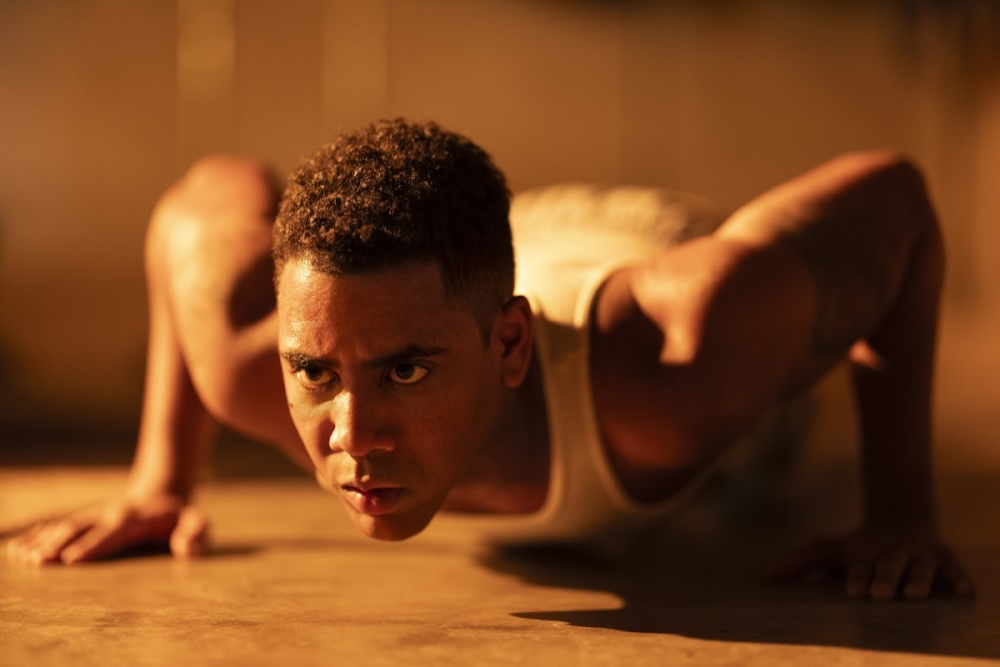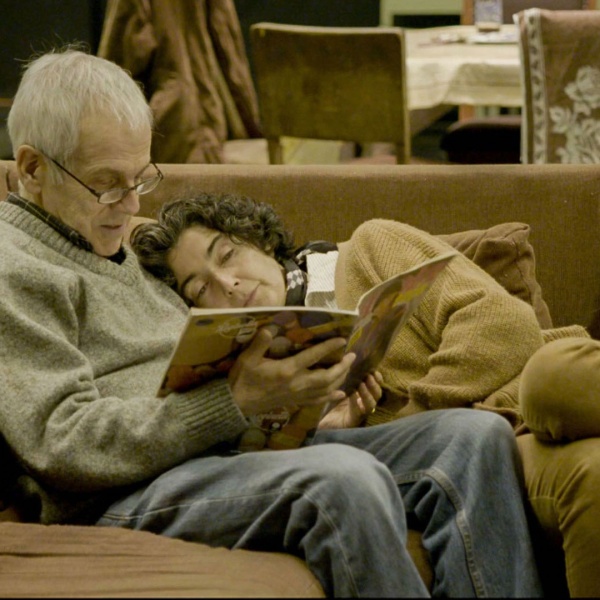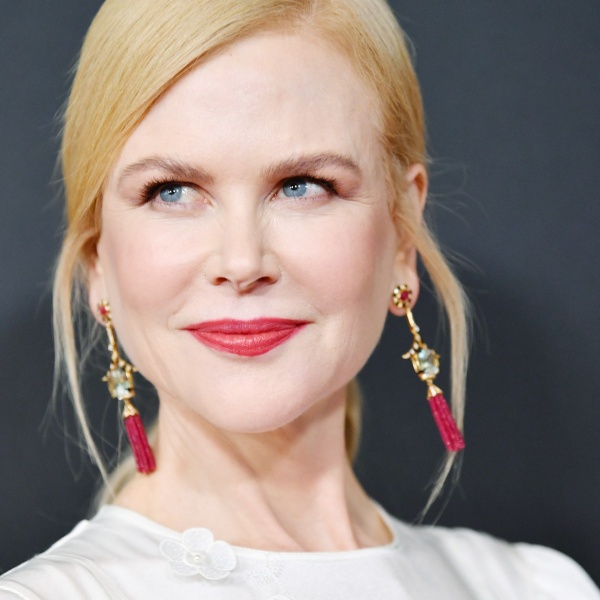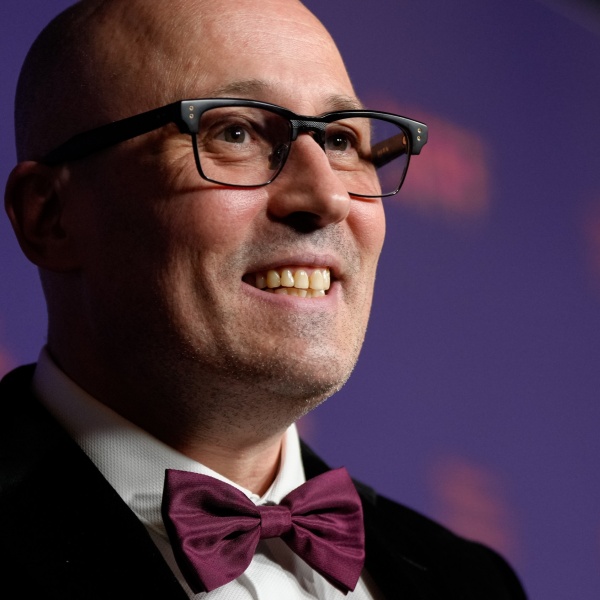Born with one leg, Anthony Robles literally wrestled his way to glory. He competed in his first wrestling match in the ninth grade and performed dismally the rest of his debut season. In his final year of college eligibility, he had an undefeated record and became a national champion. Robles embodies the kernel of truth at the heart of the most crucial and trite sports cliché: grit and determination will overcome every obstacle on the path to greatness. As David Merrill writes in his 2013 Deadspin profile of Robles, a one-legged man climbed “to the pinnacle of a sport that selects for such anatomical homogeneity that competitors of different weight classes frequently look like Russian nesting dolls of one another.”
By every objective metric, Robles is not only a remarkable anomaly but a profoundly inspirational person. This is the premise of “Unstoppable,” the biographical drama based on Robles’ journey to the NCAA championship title. From its opening scene, when Anthony, played with unwavering resolve by Jharrel Jerome, wins a high school championship title, first-time director—but long-time editor—William Goldenberg communicates that the young wrestler belongs to a category of one. Unfortunately, that’s really all “Unstoppable” has to say. Once you accept Anthony’s extraordinary nature, which is hardly a difficult proposition for any viewer with a beating heart, the film offers nothing more than a passive tour of his on-screen counterpart overcoming corporeal and domestic adversity.
That’s not to diminish the hardships Anthony faces in the film, which include an abusive stepfather (Bobby Cannavale, playing the macho asshole hits) and the polite prejudices of coaches, like Arizona State’s Sean Charles (Don Cheadle), who recognize his talent but don’t believe he can go the distance. His constant need to refute society’s immediate preconceptions pushes him to work harder than any of his teammates, which “Unstoppable” conveys most successfully in a sequence when Anthony runs three miles up a hill with the aid of crutches and less successfully through repetitive training montages. Plus, like many young adults living near the poverty line, Anthony is forced to play the role of an adult to his four young siblings and his overtaxed mother Judy (Jennifer Lopez) as she contends with her violent partner.
Alas, every scene in “Unstoppable,” whether it’s Anthony competing in a match or when he’s working his night job washing airplanes or when he’s comforting his mom during the latest crisis, the takeaway is exactly the same: Can you believe this incredible person? Goldenberg and his team of screenwriters — Eric Champnella, Alex Harris, and John Hindman — place an unfair burden on Jerome to lend Anthony grounded, fleshed-out characterization, but his best efforts can’t transcend the fact that his character is more of an idea than a human being. No one who watches “Unstoppable” will come away thinking that Robles’ feats are anything less than astonishing, but that doesn’t automatically make his triumph an involving experience.
“Unstoppable” complements Anthony’s story with his mother’s own transformation from supportive mother stuck in a physically and financially draining relationship to an independent woman capable of taking care of her large family. But this part of the film suffers from the same problem as the rest: while the real Judy Robles undoubtedly overcame enormous personal problems, her fictionalized double feels like the crib-sheet version. Like almost every other actor in “Unstoppable,” Lopez does her best to imbue her character with legible emotional realism, but leans too heavily on shorthand clichés to carry the load, both when she’s playing feisty wrestling mom or cowed domestic abuse victim.
A brief sequence in the film follows Judy as she discovers that her mortgage, which hasn’t been paid in months because Terrible Stepdad lied about covering the payments, was the product of predatory lending. “Unstoppable” clearly intends the scene when Judy confronts the loan officer about his unlawful practices to be the moment when she gets her groove back, so to speak. But the film doesn’t provide the space for her to have her “Erin Brockovich” victory and almost immediately cuts back to Anthony’s story, a disappointing choice considering the film all but explicitly states that their successes are intertwined.
Yet, it’s part and parcel with a film whose supporting cast remains so hewed to Anthony’s journey that they lack interiority by design. This wouldn’t necessarily be an issue if Anthony’s collegiate wrestling career, the reason why the film exists in the first place, had a stronger visual and narrative foundation. While we watch Anthony prove to Coach Charles that he can be on the team through a grueling try-out process, we rarely learn anything about his wrestling techniques or strategy, especially considering that Robles has unique physical advantages and disadvantages. (The aforementioned Deadspin profile thoroughly delves into this element.)
But save for Anthony’s final match against his Iowa State rival, a sort of blank Cobra Kai-esque figure, in which Goldenberg and DP Salvatore Totino take appropriate time to capture the unique tension of multiple intertwined limbs vying for dominance, the film treats wrestling itself as a means to an uplifting end, and it’s subsequently depicted with an air of detached competence. Though it is cool to see Jerome adopt Robles’ serpentine stance in the arena, a necessity considering that his balance can only be maintained low to the ground, it feels like a missed opportunity for “Unstoppable” to sidestep any narrative exploration of his wrestling skills.
“Unstoppable” deserves commendation for its matter-of-fact treatment of Robles’ disability. It’s depicted as merely a part of his life, one that only selectively hinders him athletically, and the film only lingers on Anthony’s feelings about his unipedal status when he ponders how people will view his wrestling accomplishments if he doesn’t become a national champion. (Patronizing pity, he deduces.) Jerome successfully embodies Robles’ humility even when he’s aggressively pursuing his dream, but the hero agenda that drives “Unstoppable” undercuts the on-screen portrayal of his achievements. It’s obvious that Robles can inspire people, but the film constantly pokes the audience with explicit reminders of this fact — including a scene where Lopez reads Anthony multiple letters written by children saying that they’re inspired by Robles — that it feels downright insulting.
The real-life Robles, like the fictional Rocky whom he greatly admires, brings reverence and vulnerability out of people who need to believe that they can overcome the odds to do anything. It’s a shame that “Unstoppable” doesn’t trust viewers to take that idea on faith, so instead it suffocates them with it until almost nothing else remains.
Grade: C
An Amazon MGM Studios production,“Unstoppable” premiered at the Toronto Film Festival.




